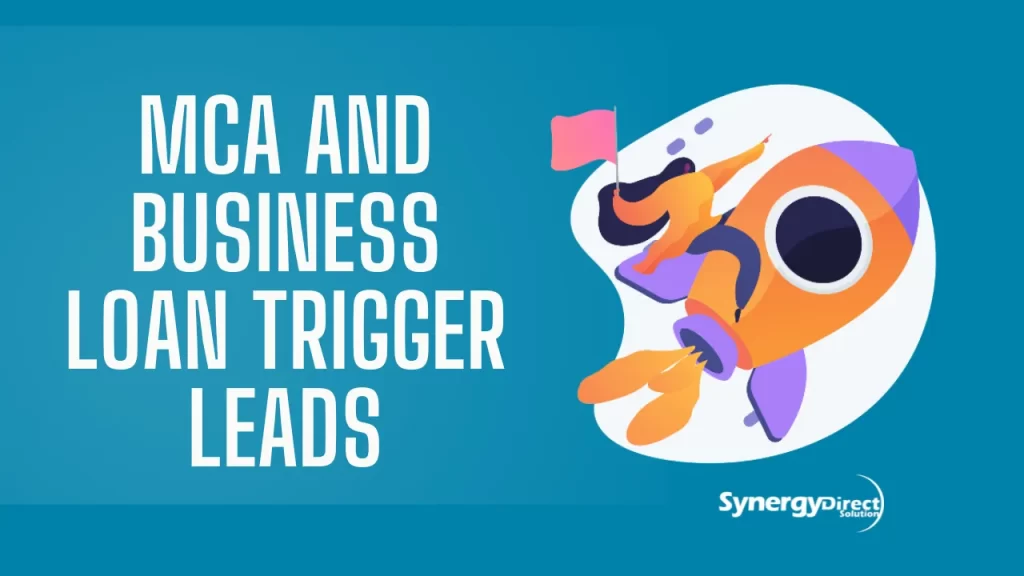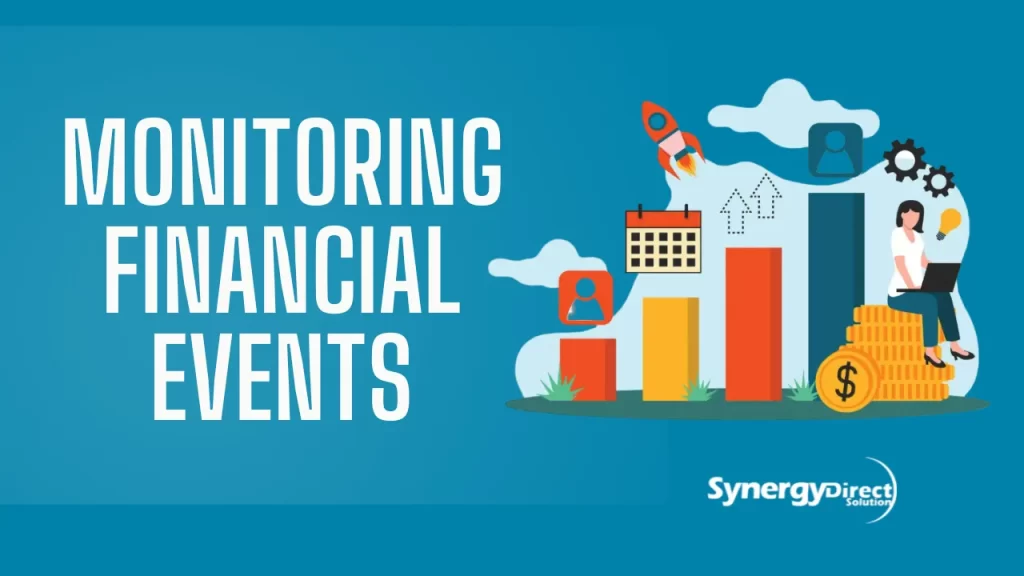MCA and Business Loan Trigger Leads: How They Work
Trigger leads are an essential tool in the business financing world, allowing businesses to access timely loan opportunities. But what exactly are they, and how do they work? In this article, we will focus on two types of trigger leads: MCA trigger leads and business loan trigger leads. By the end of this post, you’ll have a clear understanding of what these leads are, how they function, and how they can help your business secure the financing it needs.

What Are MCA Trigger Leads?
MCA Trigger Leads are specific leads generated for businesses based on events that suggest they might be in need of a Merchant Cash Advance (MCA). When certain criteria, such as a significant dip in revenue or the need for immediate cash, are met, these leads are triggered. The result is that lenders can identify businesses that are likely to benefit from MCA financing.
MCA trigger leads are primarily based on business performance metrics such as sales, revenue, or credit history. For example, if a business experiences a temporary decline in sales, it may need quick funding to bridge the gap. MCA trigger leads allow lenders to step in and offer a cash advance based on the business’s future sales, ensuring fast access to necessary funds.
How MCA Trigger Leads Work
Here’s how MCA Trigger Leads work:
Data Collection: The process begins when certain triggers are met within a business. For example, a sudden drop in revenue or a missed payment could trigger a lead.
Lead Activation: Once the trigger event occurs, an MCA provider receives the lead. This data alerts the lender to the business’s financial situation, indicating that the business might need a cash advance.
Lender’s Action: The lender contacts the business with a potential MCA offer. Since the loan is based on future sales, businesses can get access to funds quickly, sometimes within 24 to 48 hours.
Repayment: If the business accepts the offer, repayment is made through a percentage of the business’s daily credit and debit card sales, making it easier for businesses to manage repayments during slower periods.
What Are Business Loan Trigger Leads?
Business Loan Trigger Leads are a form of data-driven lead generation that identifies businesses likely to need financing based on specific financial events. These events might include a change in credit score, a significant change in revenue, or even an inquiry made for a credit report. Once these events are triggered, the lender receives information about the business and can offer tailored business loans.
For example, if a business experiences a rapid increase in revenue, a lender might view this as an opportunity for that business to secure a loan to scale further. Similarly, if a business has a sudden drop in its credit score, trigger leads can signal that the business may need a loan to stabilize its financial situation.
How Business Loan Trigger Leads Work
Here’s how Business Loan Trigger Leads function:
Monitoring Financial Events: Business loan trigger leads are generated by tracking financial events or changes. For instance, when a business applies for a credit report or experiences a significant spike in sales, it might trigger a lead.

Lead Activation: After the trigger event occurs, the business loan trigger lead is sent to a lender. The lender now has access to relevant information about the business’s current financial condition and can make loan offers based on that.
Lender’s Response: The lender reaches out to the business, offering a business loan that fits its financial needs, whether it’s for expansion, equipment, or short-term cash flow needs.
Loan Terms: Once the business accepts the offer, the loan terms will be discussed and agreed upon. This often includes factors such as the amount, interest rates, and repayment schedules.
Key Differences Between MCA Trigger Leads and Business Loan Trigger Leads
While both MCA Trigger Leads and Business Loan Trigger Leads are generated based on certain financial events, there are key differences:
MCA Trigger Leads are typically tied to businesses that need quick, short-term funding, often repaid through future sales. These leads are most useful when a business faces temporary revenue dips.
Business Loan Trigger Leads, on the other hand, are usually based on long-term financing needs, such as expansion or significant purchases. They are often used by businesses that are seeking a traditional loan to support growth or other large projects.
The primary difference lies in the type of loan offered and the repayment method. MCA trigger leads focus on sales-based advances, while business loan trigger leads focus on structured loans with specific repayment schedules.
Benefits of Using Trigger Leads
Both MCA and business loan trigger leads offer significant advantages for businesses in need of financing. Some of the main benefits include:
Faster Access to Funding: Trigger leads allow businesses to connect with lenders quickly, ensuring that funds are available when needed most.
Tailored Offers: Since the leads are based on real-time financial data, businesses are more likely to receive financing offers that match their current needs and financial situation.
Increased Chances of Approval: By targeting businesses with specific financial conditions, lenders can offer loans that are more likely to be approved, making the financing process smoother for businesses.
Common Uses of Trigger Leads
Trigger leads are commonly used in several business scenarios:
Emergency Funding: When a business faces an unexpected dip in sales or urgent cash flow needs, MCA trigger leads can provide quick access to funds.
Expansion Financing: Business loan trigger leads are often used by businesses looking to expand or purchase new equipment.
Debt Refinancing: If a business is struggling with existing debt or cash flow problems, business loan trigger leads can offer solutions through refinancing.

Challenges and Risks
While trigger leads can be beneficial, there are also challenges to consider:
Higher Costs: MCAs, in particular, can come with high fees and repayment costs due to their short-term nature. Businesses should be careful when using MCA trigger leads to ensure the costs do not outweigh the benefits.
Too Many Offers: Receiving too many business loan trigger leads can be overwhelming, especially if the offers are not well-targeted or relevant.
Risk of Overleveraging: Relying on trigger leads for too much funding could result in taking on more debt than a business can manage. It’s important to evaluate each offer carefully and only accept financing that aligns with long-term business goals.
Conclusion
Trigger leads, both for MCA and business loans, provide businesses with a valuable tool for securing financing quickly and efficiently. Whether you’re dealing with temporary cash flow issues or planning for business expansion, understanding how these leads work can help you make informed decisions about your funding options. However, it’s important to weigh the potential costs and risks associated with trigger leads to ensure they are a suitable choice for your business needs.
By using MCA and business loan trigger leads strategically, businesses can access the funding they need without the delays or complications of traditional loan processes.
